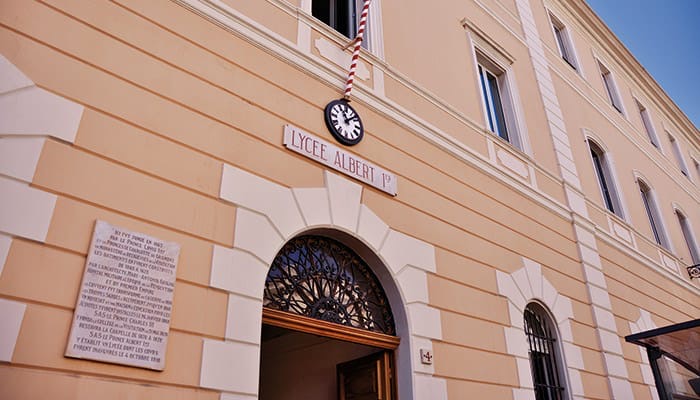Education

Monaco education is open to all and internationally renowned
Schooling is obligatory for children from 6 to 16 years of age – children can attend nursery school from the age of 3.
All the State schools and private schools under contract are approved as French educational establishments abroad. The timetables, teaching programmes and examinations taken are in conformity with those set out by the French national educational authority. For examinations, the Principality’s educational establishments are under the aegis of the Nice regional education authority.
Lessons are taught in French. Some schools have a French as a Foreign Language section, which can help non-French-speaking pupils to integrate.
The school year is divided into 36 weeks from September to July, separated by four holiday periods (Autumn half term, Christmas, February half term and the Easter holidays). The school calendar can be consulted on this page .
A wide range of training opportunities
To meet the obligatory educational requirements, there are various types of schools in the Principality :
- State education is free. There are seven State-run nursery and primary schools, a collège (secondary school for children aged 11-15), a general and technological lycée (for pupils aged 15 to 18) and a vocational lycée
- Private education under contract (subsidised by the Monegasque State and separate from State schools) has to fulfil the same requirements with regard to timetables, teaching programmes, examinations taken and teacher recruitment. It consists of a primary school and an educational establishment consisting of a primary school, collège and lycée
- Private education that is not under contract is represented by the International School of Monaco . The teaching programmes and staff recruitment are entirely independent. This establishment offers bilingual teaching (in French and English)
High quality teaching
The high quality teaching stands out for various reasons, such as:
- Small classes
- Sports education is taught by specialist teachers from primary classes, children are able to learn to swim from the age of five
- An emphasis on language teaching from an early age: english is taught from the age of three
- Numerous options are available to pupils throughout their schooling to suit individual needs and aptitudes and there are various international classes
Specific aspects of Monegasque education
Some aspects of education are still specific to Monaco:
- Religious instruction, which is included in the number of subjects taught, subject to parental approval
- The history of Monaco
- The Monegasque language, which is taught in primary and secondary schools
Secondary schools
A variety of higher education courses are available in secondary schools in Monaco.
Pupils at the Lycée Albert Ier can therefore study for the following qualifications:
- The Brevet de Technicien Supérieur Assistant Manager Vocational Training Certificate
- The Brevet de Technicien Supérieur Vocational Training Certificate in Accounting and Managing
- The Diploma in Accounting and Management (DCG)
Courses leading to the following qualifications are available at the Lycée Technique et Hôtelier de Monte-Carlo:
- The Brevet de Technicien Supérieur Management in Hotels and Catering with three options:
- Management of a catering unit (Option A)
- Management of a culinary production unit (Option B)
- Management of an accommodation unit (Option C)
Higher Education Establishments
L’Institut de Formation en Soins Infirmiers (IFSI – Nursing Training Institute) at the Princess Grace Hospital, which prepares students for the State Diploma in Nursing.
L’International University of Monaco (IUM), is a private higher education establishment. The teaching is in English. It offers courses leading to Bachelor’s and Master’s Degrees and PhDs in the fields of management and finance and in luxury products and services.
Ministerial Decree no. 2018-300 of 4 April 2018 on the recognition of diplomas awarded by the “International University of Monaco”, in short, the “IUM”.
L’École Supérieure d’Arts Plastiques (ESAP – Monaco Art School) falls under the responsibility of the Mairie de Monaco (Monaco Town Hall), which issues higher education diplomas in art (the DNAP and DNSEP).



